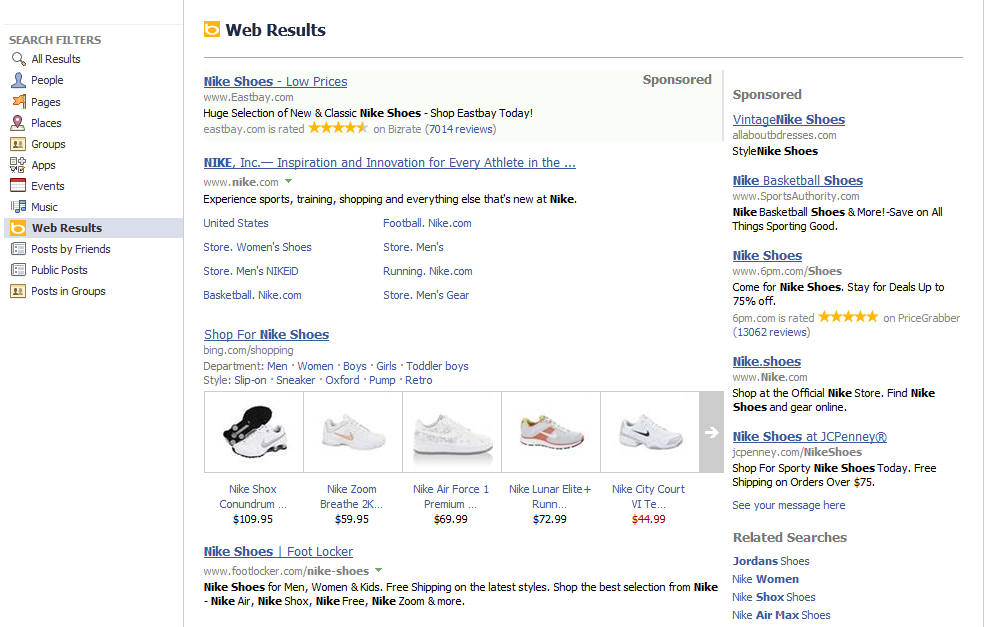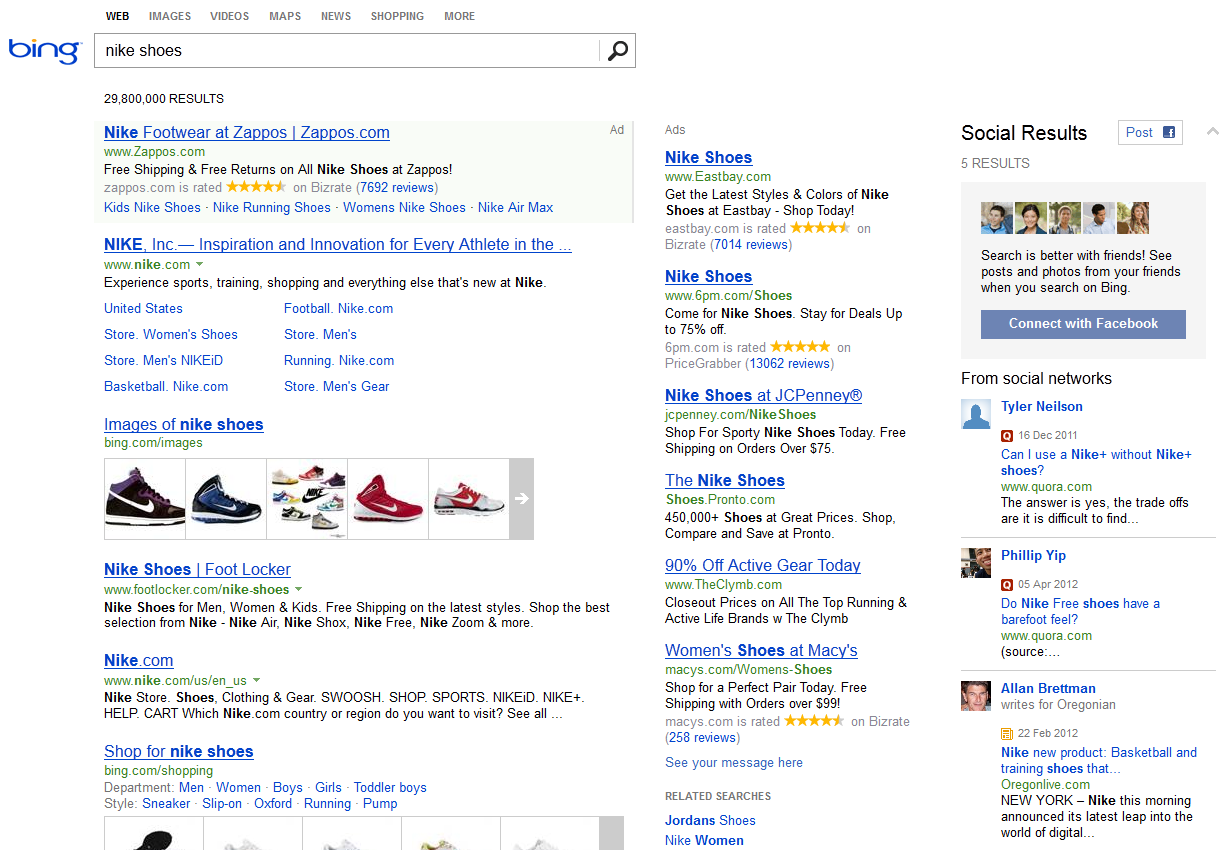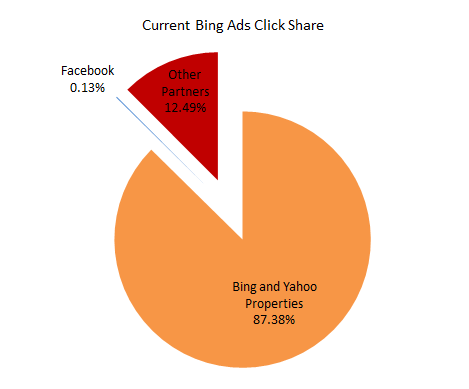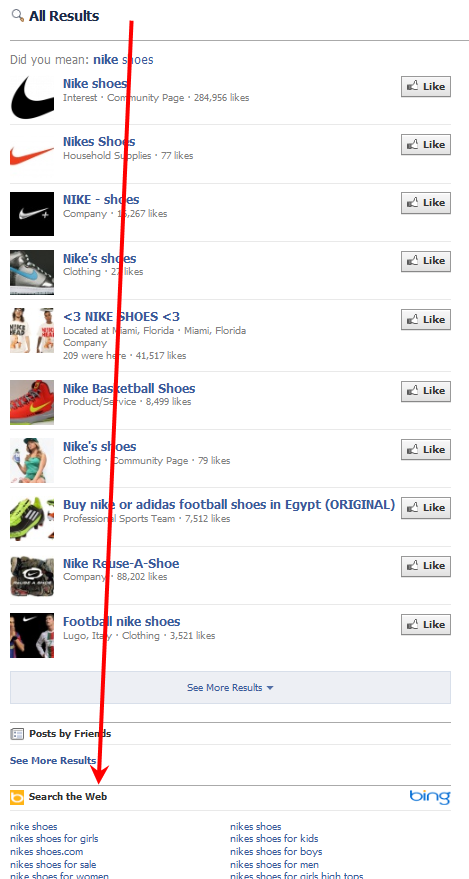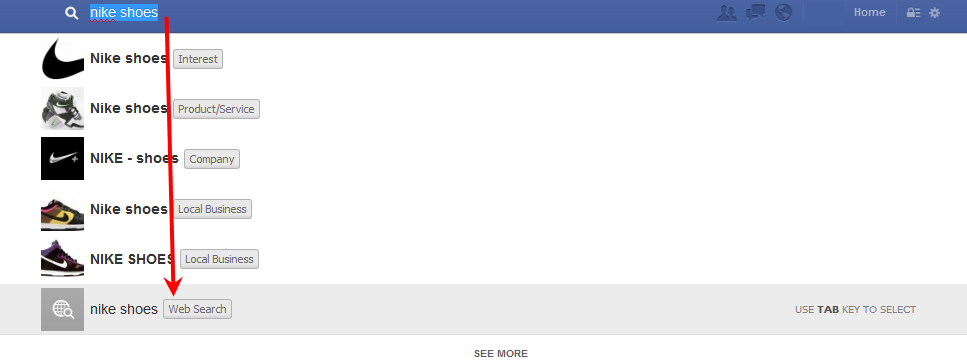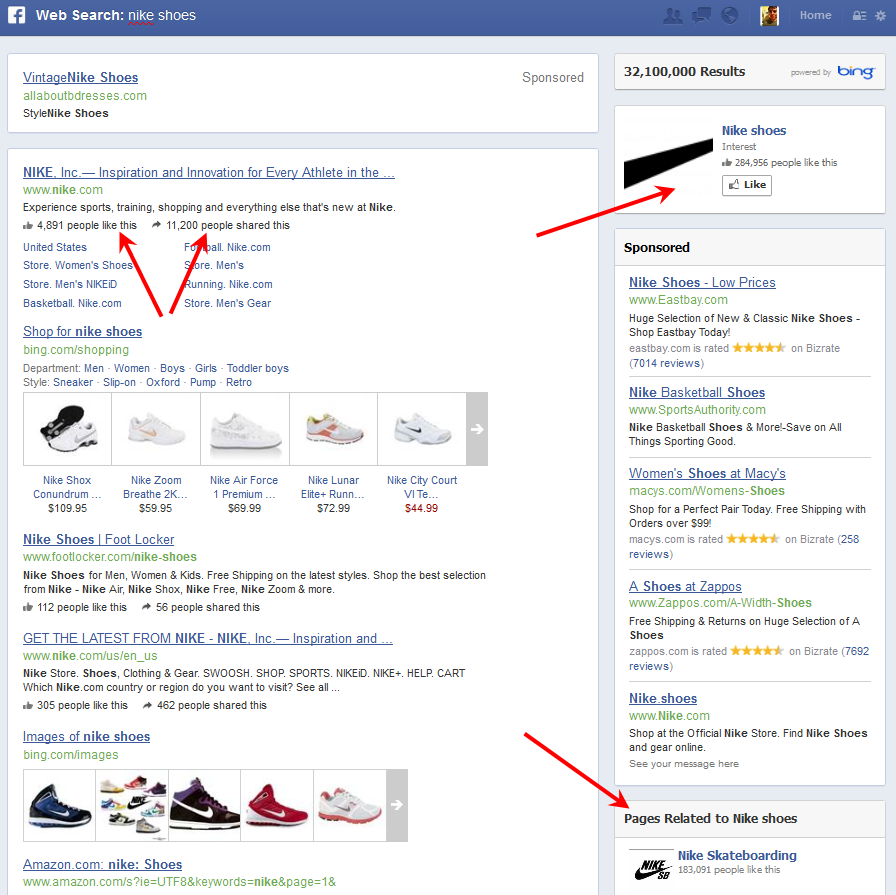Will Facebook’s Graph Search Be Big For Bing Advertisers?
Following Facebook’s announcement of Graph Search a few weeks back, there’s been no shortage of analysis and speculation on what the move will mean for Facebook, its users, marketers and possible Facebook competitors, including the traditional search engines. At least in one arena, we can try to put some specific numbers together to shed some light […]
 Following Facebook’s announcement of Graph Search a few weeks back, there’s been no shortage of analysis and speculation on what the move will mean for Facebook, its users, marketers and possible Facebook competitors, including the traditional search engines.
Following Facebook’s announcement of Graph Search a few weeks back, there’s been no shortage of analysis and speculation on what the move will mean for Facebook, its users, marketers and possible Facebook competitors, including the traditional search engines.
At least in one arena, we can try to put some specific numbers together to shed some light on the potential here.
A Brief History Of Bing & Facebook
First, some background: Since 2008, Microsoft has been providing Web search results for Facebook along with search ads to monetize them.
That seems to be news to a lot of people, going by many of the articles written about Graph Search, but this deal goes all the way back to the days when Microsoft’s core search product was still known as Live Search, and its ad platform was adCenter.
Over the ensuing years, Live Search became Bing, adCenter was renamed Bing Ads, and Microsoft and Facebook took some early steps toward integrating social content into their Web results.
In 2010, Bing and Facebook partnered to bring People Search and Liked by your Facebook Friends content into both Bing.com and Facebook Web search results. But prior to Graph Search, the SERP for most Web searches conducted on Facebook basically looked like a standard Bing.com result pasted into a Facebook frame:
If anything, searches on Bing.com have been more likely to deliver social content via Facebook than Web searches on Facebook itself.
With the introduction of the Social Sidebar last year, Bing integrated feed content from Facebook (for those users willing to make the connection) along with a few other capabilities like the Ask Friends feature.
Even if Facebook hadn’t been investing a great deal of resources to the Web search on its site, it’s had a nearly unrivaled user base for some time now, and some of those users must be using it, right?
Facebook As A Bing Search Ad Partner
In an interview just a few months ago, CEO Mark Zuckerberg noted that Facebook was already handling “basically” a billion queries a day. For comparison, Google recently revealed it answered 100 billion queries a month, so there’s not as much space between the two as we might expect. However, based upon RKG research into Facebook’s traffic levels as a Bing search partner, it appears that Web searches make up just a tiny fraction of Facebook queries.
Analyzing publisher reports for Bing search campaigns targeted to the U.S., we find Facebook currently generating just 0.13% of clicks on Bing Ads, which also powers Yahoo.
Given that Bing Ads represent just 17% of total paid clicks for our clients, Facebook’s share of overall paid search clicks is roughly 0.02%. For another comparison, our figures suggest that Amazon, Ask and Aol all have search ad click shares in the single digits. Facebook is about on par with ad traffic we see from Blekko.
Will Graph Search Drive More Bing Searches?
The figures above may sound surprising (and there’s a chance Bing’s own data understates Facebook traffic), but Web search has been far from prominent, if not flat out difficult to find on Facebook. With the changes rolling out now with Graph Search, we could very well see a significant increase in Web searches and search ad clicks originating from Facebook.
Here’s an example of a query using Facebook’s old search bar:
This is a query with decent commercial intent, but the user is presented with ten Facebook pages to Like (some of which appear just to be squatting on a potentially popular term) before the user sees the option to search the Web.
For the same query, Graph Search auto-populates just five Facebook pages before giving an option to conduct a Web search:
In addition to being more prominent, the link to the Bing search is more seamlessly integrated into the other results. For specific searches and misspellings, often all of the Graph Search results point to a Web search link.
When a user does conduct a Web search through Graph Search, the new SERP does a better job of incorporating Facebook content such as Like and Share counts, as well as related Facebook pages. The layout is also more visually appealing and looks far less like an afterthought:
What Does This Mean For Search Ad Clicks?
All together, these changes should lead to more Bing searches on Facebook and, in turn, more search ad clicks. It is still very early, but we do see indications that this is occurring.
Facebook’s share of Bing Ads clicks still appears small, but it is now 2-3X higher than it was during the fourth quarter of 2012. The timing of that growth fits with the rollout of Graph Search, but it’s important to note that Facebook has stated that Graph Search is only rolled out “to the order of tens or hundreds of thousands of people.” That’s a pretty small fraction of their users, so if the growth above is a direct result of Graph Search, it represents only a small amount of the potential.
Still, advertisers would have to see Facebook Web search volume grow by orders of magnitude before it will have appreciable impact on their paid search programs. While that could occur, it’s hard to imagine that Facebook sees driving up traditional search ad revenues as the primary monetization opportunity from Graph Search.
If Not Bing Search Ads, Then What?
Obviously, no one can say for sure how the monetization of Graph Search will play out, not even Facebook itself, but there have been some compelling ideas put out there. Certainly Sponsored Results as part of the search suggestions will continue to be a natural fit.
Less directly, as a number of analysts have noted, the ability of Graph Search to answer certain types of questions with commercial intent could bring a resurgence in the value of Likes. In order to ensure prominent placement in the Graph Search results, marketers of all stripes will need to make sure they have plenty of Likes for their page. One way to achieve that is by running the existing Facebook ad formats.
For his part, Zuckerberg has made a point to “temper near-term expectations” for Graph Search revenue, including on Facebook’s Q4 earnings call. At the same time though, Facebook continues to trumpet the new tool as a third pillar of its ecosystem along with the News Feed and Timeline, so they clearly have lofty ambitions in the long run.
Contributing authors are invited to create content for Search Engine Land and are chosen for their expertise and contribution to the search community. Our contributors work under the oversight of the editorial staff and contributions are checked for quality and relevance to our readers. The opinions they express are their own.
Related stories
New on Search Engine Land
